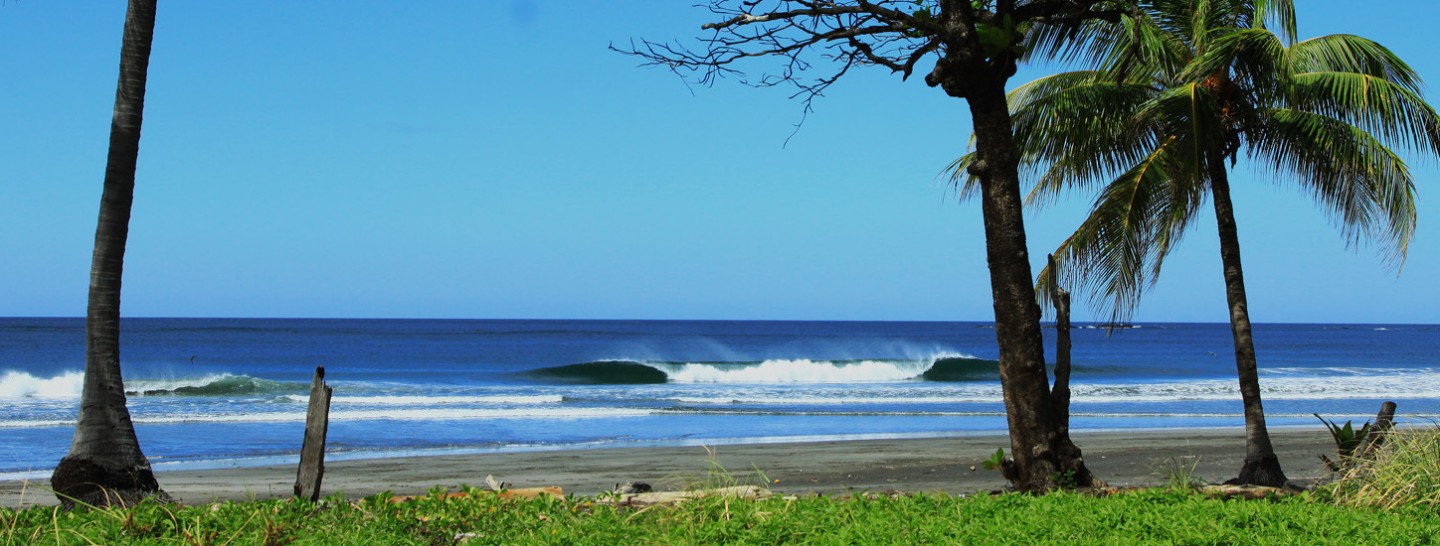
A new survey asks surfers to provide data on their travel habits to inform surf tourism development
Over the years, surfers have often been labeled as less productive members of society. Bolstered by portrayals of surfers in popular culture, a stereotype persists to this day of surfers as pleasure seekers who value personal enjoyment over civic engagement and a successful career. Think of the wandering nomad who rejects the conventions of modern society to pursue the perfect wave. Yet, while this notion retains some truth - and remains a romantic ideal for many others - it obscures the value of the surfing as an economic driver for coastal communities.
In the past decade, a number of studies have greatly improved our understanding of the economic benefits of surfing in the United States. These include coastal recreation studies by the Surfrider Foundation that have spotlighted the billions of dollars in economic revenue resulting from a healthy ocean environment. They have also spurred government agencies to value coastal recreation in decision making and policy development. The latest examples include Regional Ocean Plans created in the Mid-Atlantic and Northeast that will help protect recreational opportunities for decades to come.
Now, a team of surfing academics from Old Dominion University and the Coral Triangle Conservancy has launched a study to improve understanding of the global value of surf tourism. This includes identifying why, where, and how surfers travel. To collect data, the research team is recruiting participants 18 years or older who travel and stay at least one night away from their home in order to surf:
Take the survey here: www.surftravelsurvey.com
The research team will use the survey responses to communicate the role of surf tourism as a development strategy to industry stakeholders, especially those in lesser-developed regions around the globe. Through reporting the preferences, habits and motivations of surfers who travel, the team hopes to inform responsible management decisions for coastal areas that are looking to attract surfer visitation.
In particular, the survey may shed light on opportunities to market to advanced surfers. “Many governments are familiar mostly with novice surfing activities, similar to those occurring at places like Kuta Beach in Bali, Indonesia,” said study leader Dr. Brooke Porter, Scientific Advisor at the Coral Triangle Conservancy. “These governments are underestimating the expenditures and value of intermediate and advanced surfers who travel for exclusive surf experiences.”
Of course, surf tourism can be a double edged sword for developing countries. On one had, it offers enormous opportunities for economic development that are compatible with natural resource protection. On the other hand, it can produce impacts on the local culture and environment and distribute benefits unequally. And let's not forget about fossil fuel consumption for airplane and car travel, which contributes to global climate change.
But in an age where developing countries are under extreme political pressure to extract their natural resources, surf tourism offers a valuable and much-needed opportunity for nations to develop economically in a way that protect coastal environments. As countries like Costa Rica have shown, stewardship of natural resources can provide multiple benefits from a socioeconomic and environmental perspective.
And, for those of us lucky enough to participate in surf tourism at any level, we have the opportunity to support better approaches by carefully considering the places and operators we choose along with how our visit will impact local communities.
